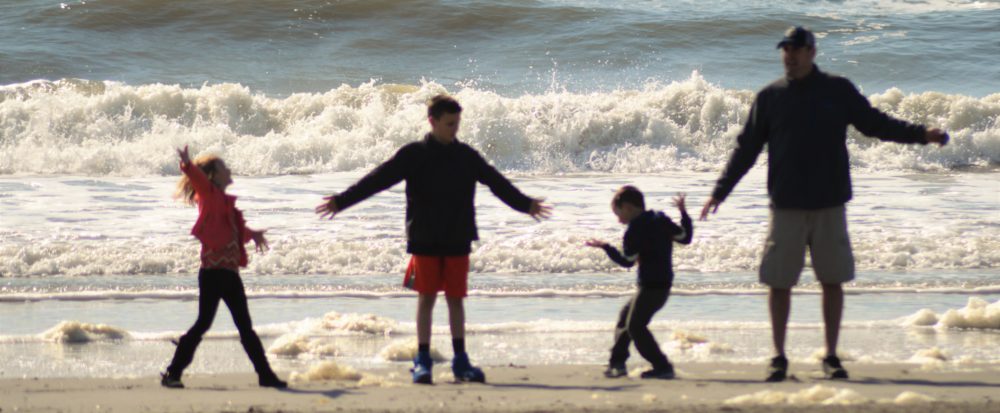“Let’s go camping!” Declan exclaimed as he began searching excitedly for sticks. “We will build a campfire and toast marshmallows!”
“Okay,” I agreed and began searching for sticks to put into the pile.
“That should do it. Okay. Shhhhh…” Declan sounded as he lit a fake fire. He handed me a stick and placed his over the fire. “Now let’s toast some marshmallows.”
I followed suit and in a couple of seconds I was eating a gooey delicious fake marshmallow, just like Declan, right off the stick.
“Oh no.” Declan’s eyes got big and he looked around. “Here come ROBOTS!”
I looked around the lush greenness of the backyard and mentally saw everything turn to metal.
“I will be Luke Skywalker and you will be a battle droid.”
Declan got into position and began to use his air light saber to swing at me. My movements became robotic as I wildly fired my laser gun into the air, “Pew, pew, pew!” I added for good sound effect measure.
And we played. The Star Wars scene changed frequently, each of us donning the attributes of a new character. Until Declan decided it was time to jump over rocks. And then play Ghostbusters.
“Bustin’ makes me feel good,” Declan sang the Ghostbusters song after he successfully captured the last ghost.
Which, of course, made me laugh.
Play Time?
For years, Declan did not play with toys. At all. If I tried to engage him with toy trains or figures he would throw them. Sometimes at me.
Declan’s toys were our door stoppers. He took them all out of the wall. Or our drawer knobs. Climbing to the top of all our dressers or swinging from curtains. Any household item was his toy, and most were not safe. Our house was emptied.
I was so excited one day when I saw Declan take the toy cars and trains out. He was playing with real toys! I took his picture to show my husband.

Yes, I thought it looked strange at the time. It wasn’t until later when Declan was diagnosed with autism that this piece of Declan began to make more sense.
But, like most things with Declan, his play evolved.
Children’s play usually evolves by interacting with toys and then watching other kids play with toys. Eventually interacting with other children to play (Anderson-McNamee and Bailey, 2010).
Children with autism have different challenges when it comes to play (Rudy, 2016).
They lack:
- Imitation skills – watching others play and imitating the play
- Symbolic play skills – pretend play, like playing house
- Social communication skills – children with autism tend to be self-absorbed and do not have the desire or skills to interact with other children
- Joint attention skills – paying attention to an activity with another person, like a board game or puzzle
All of this was true for Declan as he was never interested in toys. If he sat with one his only goal was to take it apart. Or throw it. He never saw other kids nor learned by watching others.
Now though, Declan’s play centers around reenacting things he has seen on TV, or his favorite movies. His fantasy play is very rich. In costume, character or with his toy figures.
Declan is also aware of other kids. I am sure he is watching them. And he plays very well with adults (we always do what he says). One day he will take the social skills he has learned and apply it to other children.
Declan went camping, fought the ghosts and battle droids. He wasn’t out playing with the large group of kids on the street. But he WAS playing.
And I was very happily playing with my son. Who at one time, I never thought would play.
So if I am sure of anything, I am sure his play will continue to evolve. It will just occur by taking one different step at a time.
Resources
“Why Does my Autistic Child Play Differently than Other Children” Lisa Jo Rudy, VeryWell, 2016, https://www.verywell.com/autistic-child-form-of-play-259884
“The Importance of Play in Early Childhood Development,” Anderson-McNamee and Bailey, Montanna State University, 2010, http://msuextension.org/publications/HomeHealthandFamily/MT201003HR.pdf


Leave a Reply